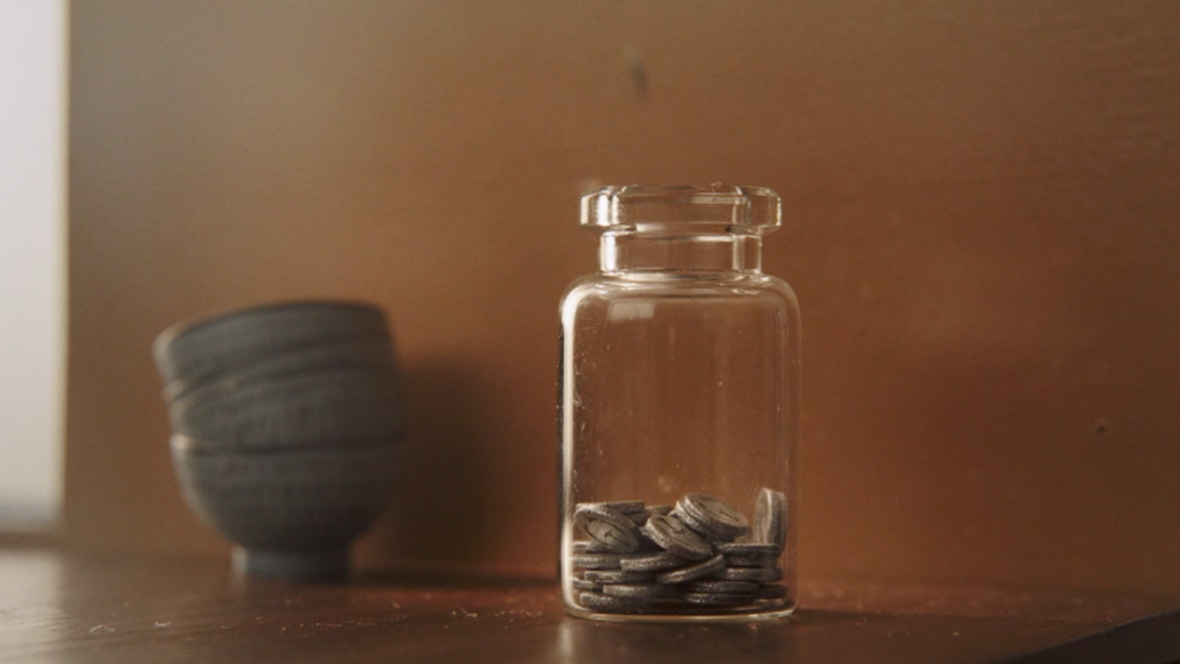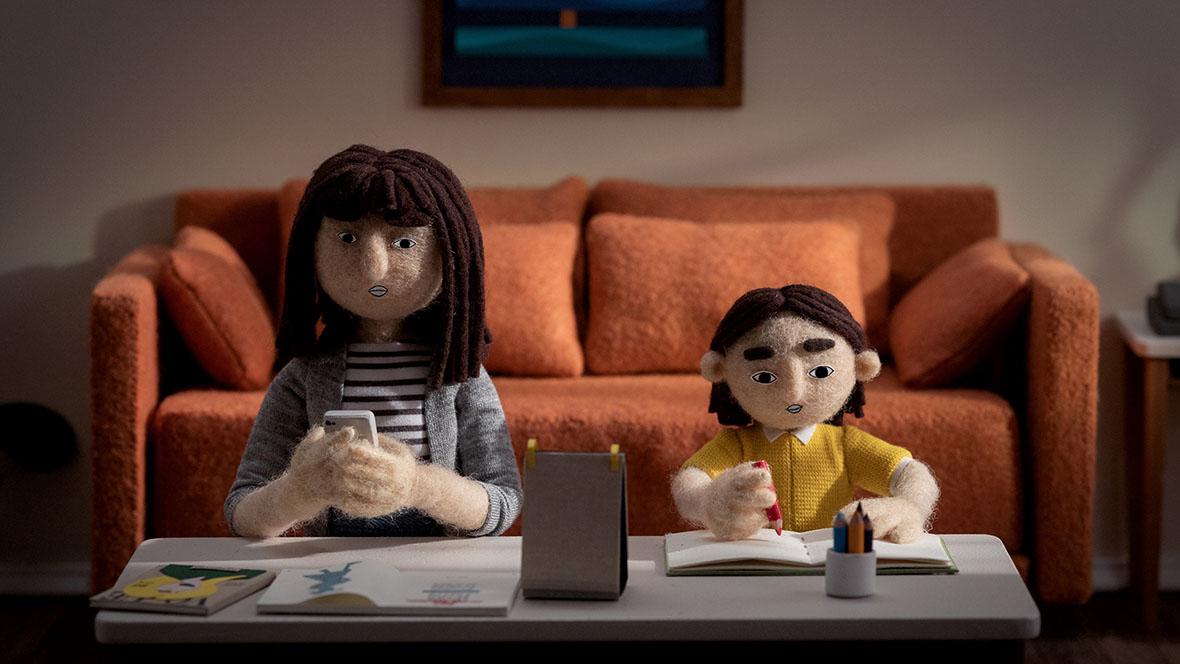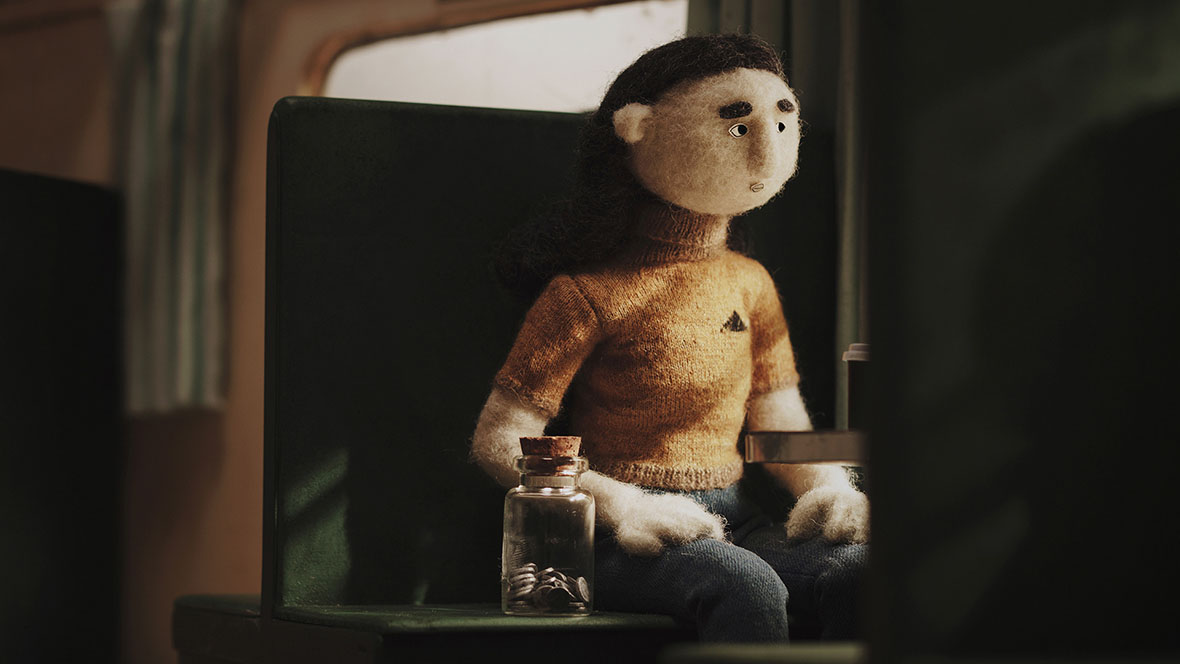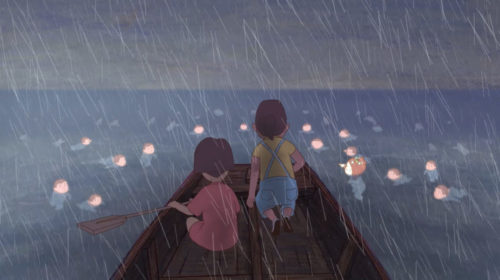This article was originally published on Neocha and is republished with permission.
“A pound of pork, two sprigs of spring onion, then mince up some onion and ginger. Add the salt and pepper, stir it up, and then the meat filling is ready.”
The opening scene and accompanying dialogue to The Coin, a short film by Chinese director Song Siqi, is enough to leave peoples’ stomachs growling, not only for food but for the flavors of home.
At age 10, Song moved abroad to study and she spent most of her adolescent years at a boarding school. She never spent a long stint of time back home until university, where she attended school in both Los Angeles and Beijing. These experiences have largely altered her idea of home. Whenever she traveled back to China to visit friends and family, it never felt like home—she felt like a visitor. In Song’s work though, she approaches the topic of “home” with unabashed clarity and confidence.
The Coin centers on the Chinese New Year tradition of slipping a coin inside a dumpling’s filling. Whoever eats the coin-stuffed dumpling is believed to be endowed with good fortune for the rest of the year. “The coin is essentially a wish, a blessing from your own family,” she says.
To capture what this tradition means to her, Song decided to animate the entire dumpling-making process, from preparing the filling and rolling out the dough to wrapping and cooking them. Of course, the most essential ingredient of all wasn’t forgotten: the coin, which to Song, was a “multifaceted symbol that represents parental love and a connection to heritage.”


The six-minute-long film is made up of over 5,000 stop-motion frames, but being a completely independent production, it took nine months to complete.
In the film, the female protagonist is moving away from home to a foreign country. On her journey, she’s brought a jar filled with coins collected from the lucky dumplings she’s eaten over the years. Upon arriving, she decides to grab lunch at a local cafe. As soon as she sits down though, she realizes that she left her jar on the train. This realization begins a nightmarish sequence into her psyche, where she’s attacked by an assortment of Western dishes—hamburgers, pasta, and pizzas. Every circular ingredient on these dishes reminds her of her lucky coins, but they’re just not quite the same. This hellish episode represents the intrusion of Western culture, which seems ready to happily erase her Eastern roots. With the coins missing, has the good luck she accused over the years also run out? Is her connection to her homeland forever gone, never to be found again?
Thankfully, the film ends on a happy note. Looking deeper inwards—shown by the protagonist entering her own stomach—she discovers the coin, the symbol of her heritage, isn’t really gone. One of the missing coins is embedded in her stomach lining. As it turns out, cultural roots aren’t that easily upended. “‘Finding’ the coin again is a blessing that I’m giving myself,” Song says.
Home and family are topics close to Song’s heart, and this affinity is obvious throughout her work. Her short film Sister, which was nominated for an Academy Award in the Best Animated Short Film category, follows these same thematics. “I designed the characters and sets based on old family photos,” she says. “I wanted to tell a story through the lens of my childhood nostalgia.”
Sister is about an only child who’s dreamed up an imaginary sister. He conceives an elaborate story in his mind, of them playing around and growing up together. “It’s based on my own brother,” Song says. “It’s rare to have siblings because of the one-child policy in China. Growing up, when people would hear I had an older brother, they’d ask me, ‘What was it like growing up with an older brother?’” With this in mind, the story was meant to capture the “unique experience of growing up in her generation.”
In the film, the two siblings’ interactions and mannerisms are all based on Song’s real experiences. Growing up, she and her brother often fought over the most trivial of matters. “We were kids though,” she laughs. “Now that we’re older, we don’t really fight. We’re quite close.”


Song’s brother, now studying as a post-grad, is even working with her on a script about immigrating to the U.S. In real life, her parents are also far more progressive than their in-film counterparts. Song considers herself quite lucky. Even though her parents don’t come from creative backgrounds, they’re fully supportive of her artistic ambitions.
In summing up Sister, Song wrote a singular line: “Dedicated to the siblings we never had.” With this film, she hopes for viewers to walk away with a new perspective on familial love. This heightened sensitivity to family dynamics is perhaps what makes her work so touching—she taps into the primal human yearning to belong and be loved.
As someone who’s experienced both of Western and Eastern culture, Song has conflicting feelings: sometimes the world feels so minuscule, while other times it can feel immensely vast, with large gaps between us as individuals. “I hope people can empathize with one another, and through stories with universal themes, people can realize that they’re not all that different,” she says. “Through my films, I want to bring different people together.”







